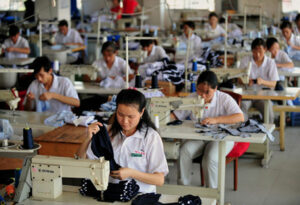EMPLOYMENT growth remains too weak to significantly impact persistent decent work deficits, an International Labour Organization (ILO) report found.
While employment growth remains steady, various factors are testing the resilience of labor markets worldwide, the World Employment and Social Outlook: Trends 2025 report, released on Thursday, read.
“Decent work and productive employment are essential for achieving social justice and the Sustainable Development Goals (SDGs),” ILO Director-General Gilbert F. Houngbo said in a statement.
“To avoid exacerbating already strained social cohesion, escalating climate impacts, and surging debt, we must act now to tackle labor market challenges and create a fairer, more sustainable future,” he added.
In 2024, global employment grew alongside the expanding labor force, maintaining the global unemployment rate at a steady 5%, consistent with the level recorded in 2023, the ILO noted.
However, this growth remains insufficient to address persistent decent work deficits as young workers continue to face high unemployment rates, around 12.6%, with little sign of improvement, it added.
The global economy is projected to slow down, hindering a stronger labor market recovery. Economic growth was at 3.2% in 2024, down from 3.3% in 2023 and 3.6% in 2022.
The weakening economic growth contributed to stagnating wage growth as real wages in most countries have not rebounded yet from the pitfalls of the pandemic years and the inflationary episode that followed, the report noted.
Compounding these challenges, labor force participation has slightly also declined, particularly in low-income countries, which has weighed on employment growth.
Persistent gender gaps in participation also remain a significant barrier, with women facing greater obstacles to entering the workforce compared to men.
The global jobs gap, which measures the overall number of missing jobs, stood at 402.4 million in 2024. This includes the unemployed, discouraged workers, and those unable to work due to care obligations.
Working poverty persists, especially in low-income countries, with 240 million workers experiencing extreme poverty, the report found.
Informality also persists, with over half the global workforce lacking adequate social security and legal protection.
A major bottleneck in expanding decent work opportunities is slowing productivity growth, which has fallen by half a percentage point from the pre-pandemic long-term average.
OPPORTUNITIES AND SOLUTIONSTo address the challenges, the report urged an increase in productivity by investing in skills training, education and infrastructure to support economic growth and job creation.
It added expanding social protection to provide better access to social security and safe working conditions to reduce inequality.
Lastly, the report emphasized the importance of effectively utilizing private funds, highlighting how low-income countries can leverage remittances and diaspora contributions to drive local development initiatives.
Meanwhile, the green transition is opening new opportunities for decent jobs, driven by increased investments in renewable energy and sustainable industries, the report said.
Investments in green energy and mobility created new job opportunities with an additional 16.2 million jobs, mostly concentrated in East Asia.
“However, job creation in renewable energy production is unequally distributed around the globe. Almost half of new green job opportunities have been in Eastern Asia; there have been few decent work benefits in other developing and emerging economies.”
The report also emphasized the need for innovative solutions to accelerate progress towards social justice and the SDGs of the United Nations.
It called for addressing bottlenecks in structural transformation, reducing spatial inequalities and ensuring that new technologies boost productivity growth.
Furthermore, providing skills and education to young people is essential for their successful participation in the labor market.
The report also emphasized that decent work and productive employment remain the cornerstones of achieving the SDGs by 2030. — Chloe Mari A. Hufana






